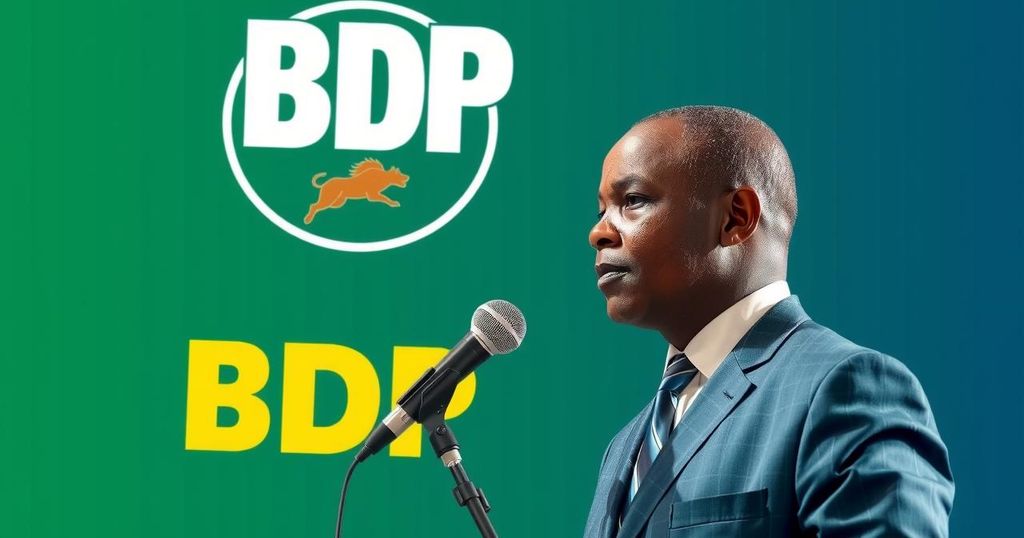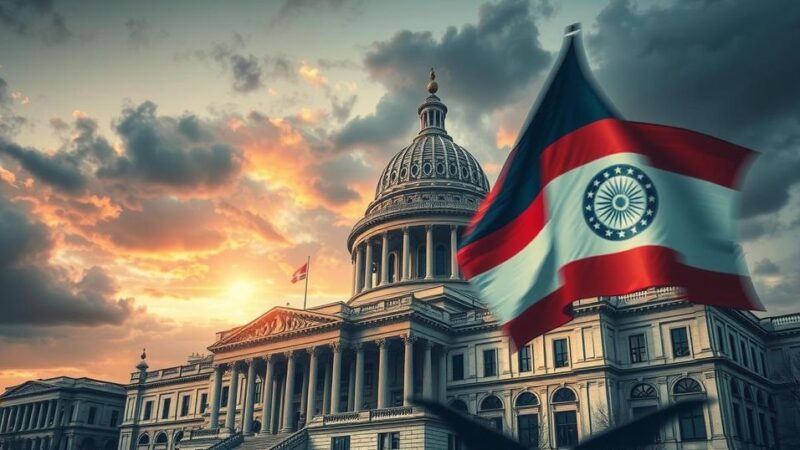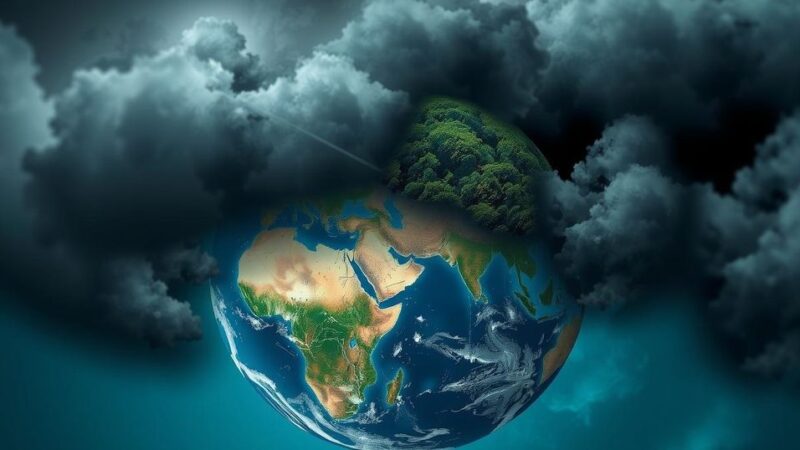Botswana’s BDP seeks to win the upcoming elections by promising change, amidst a backdrop of significant economic challenges, particularly high unemployment and income inequality. Despite its historical dominance in the political realm, the party faces increased scrutiny and competition from emerging opposition parties that are capitalizing on public discontent over governance issues.
In the upcoming elections for Botswana, the Botswana Democratic Party (BDP), led by President Mokgweetsi Masisi, is advocating for a call to “change” despite having been in power for 58 years. The BDP aims to win support by pledging to improve the economic landscape of the country, which is grappling with significant unemployment—particularly among youth—and income inequality, as indicated by a high Gini index. Masisi, who has been president since 2018, emphasizes the need for transformation in his campaign slogans. This marks a notable shift, as the BDP has historically been associated with stability rather than change. While the BDP has previously dominated the political landscape, the current election is shrouded in uncertainty due to the emergence of opposition parties such as the Botswana Congress Party (BCP) and the Umbrella for Democratic Change (UDC), both of which have criticized the BDP’s governance and proposed job creation targets. Observers warn of potential disarray among opposition voters which might inadvertently bolster the BDP’s prospects. The election’s tension is amplified by historical rivalries within the political sphere, notably the fallout between Masisi and former President Ian Khama, who has since become a vocal opponent of the BDP. As the election approaches, the BDP is attempting to stave off the challenges from the opposition, while also addressing the economic concerns that could jeopardize its longstanding rule.
Botswana has a long political history characterized by the dominance of the Botswana Democratic Party (BDP), which has ruled since independence in 1966. A key aspect of Botswana’s economic narrative has been its rich diamond resources that have facilitated significant socio-economic development. However, despite these advancements, the country now faces critical challenges, including high unemployment rates, especially among young graduates, and stark wealth inequality. Such challenges have spurred the current administration to pivot its message toward change, a concept typically aligned with the opposition who have criticized the government. This electoral environment reflects broader issues of governance, public trust, and the resilience of Botswana’s democratic institutions.
The upcoming general elections in Botswana present a complex interplay of historical political dominance, economic challenges, and shifting public sentiment. The BDP faces significant scrutiny regarding its capabilities to effectuate real change amid persistent unemployment and inequality. The elections may serve as a critical juncture in determining whether the BDP can maintain its legacy of governance or if a new coalition of opposition parties can successfully reclaim power through a unified message and strategy.
Original Source: www.bbc.com






